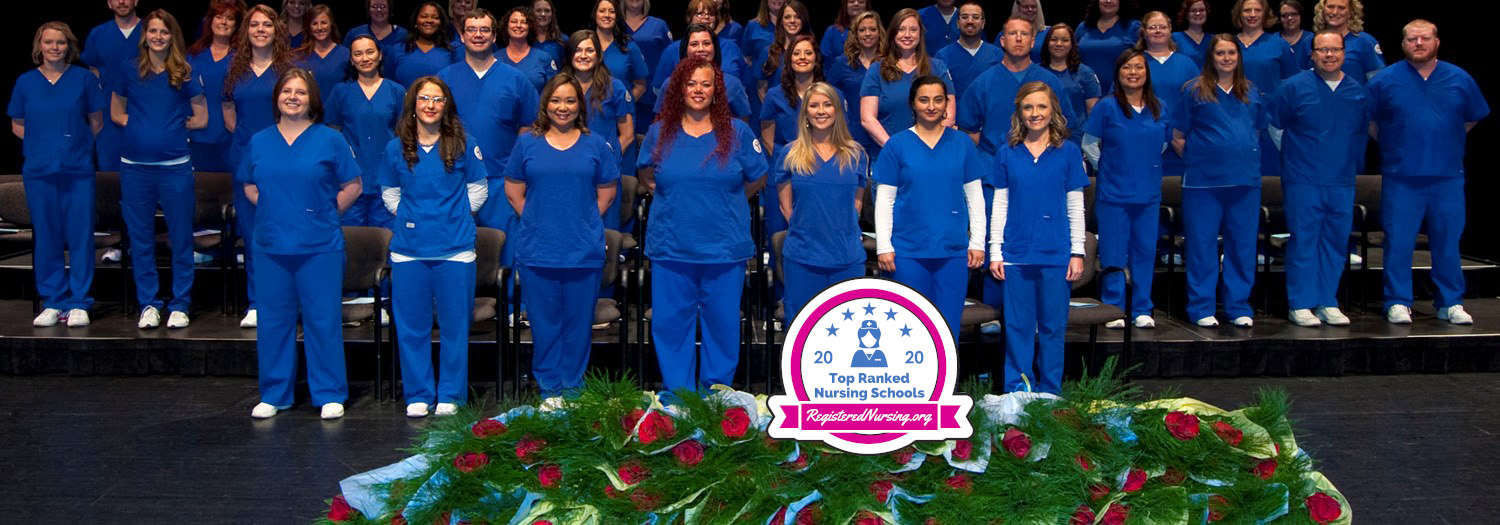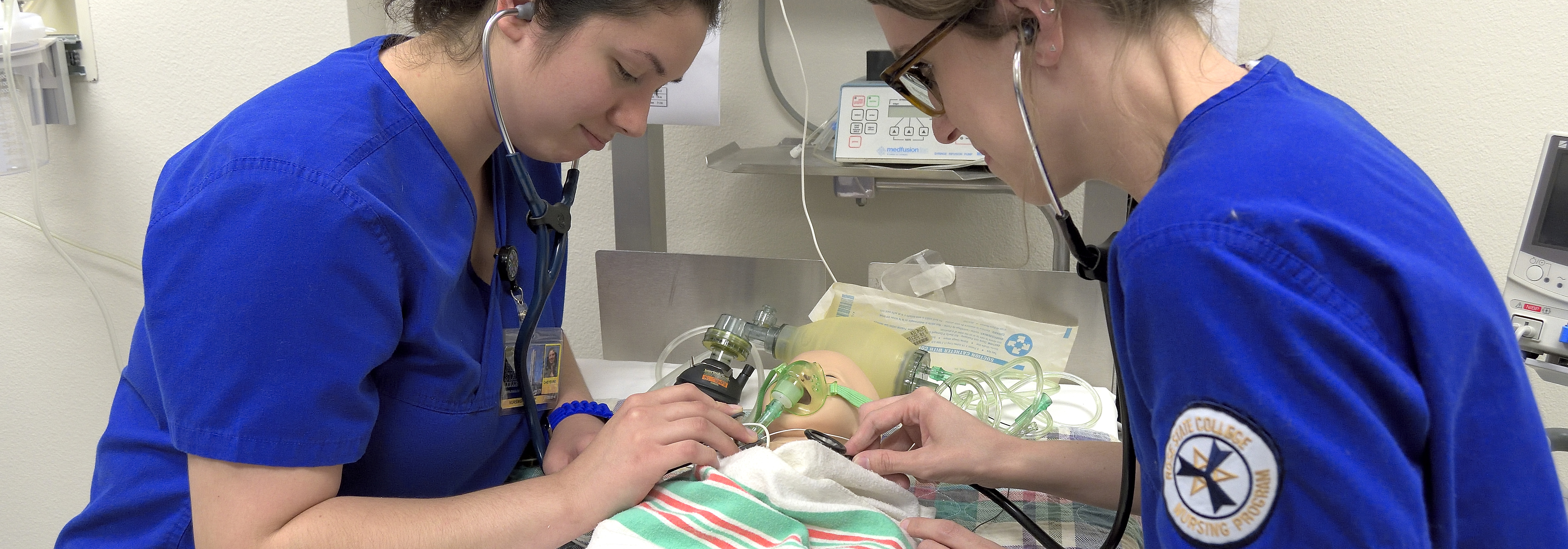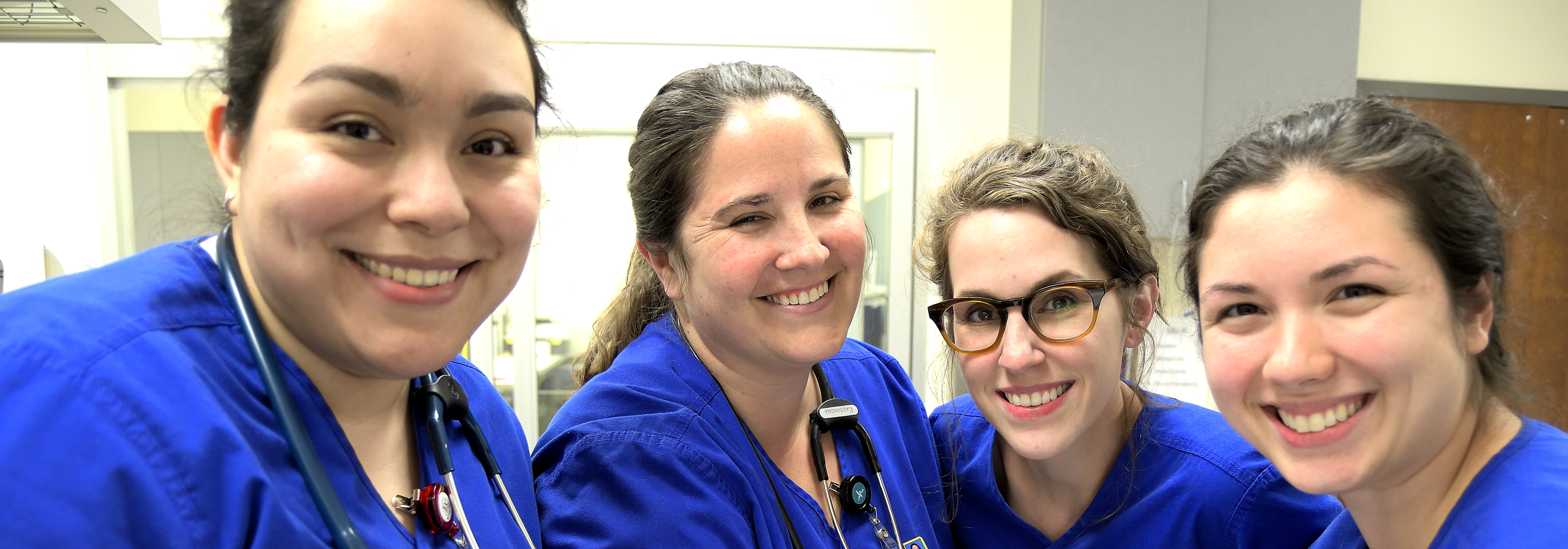Mental and Physical Qualifications
In order to successfully progress through the nursing program and function as a safe, practicing nurse during the education process and after graduation, an individual must be able to perform certain physical activities that include vocal, visual, olfactory, auditory, and dexterity requirements. The nursing program has established standards/guidelines in an effort to provide a framework to balance several competing interests that are specific to nursing: the rights of applicants and students; the safety of students, their peers, clients/families, and healthcare team members; the significant clinical/practicum component of the program; and the clinical agency contracts allowing the nursing program to place students in various healthcare facilities for clinical/practicum. These challenges may prevent some nursing students from completing the program. Therefore, the following minimal physical and mental qualifications are necessary to be considered for admission into and progression through the Rose State College Nursing Science Program.
- The ability to lift weights of up to 35% of recommended body weight independently.
- The motor ability necessary to ambulate independently in client’s rooms and in work areas; to manipulate equipment and supplies and to utilize palpation and percussion in client assessment.
- Visual acuity sufficient to observe and assess client behavior, prepare and administer medications, and accurately read monitors.
- Auditory acuity sufficient to hear instructions, requests, monitoring alarms, and to auscultate heart tones, breath sounds, and bowel sounds.
- The ability to speak, write, and comprehend the English language proficiently. Sufficient communication and language skills to interact with clients, family members, and the healthcare team. To communicate effectively in English, as may be necessary for the client’s interest and safety. Must be able to obtain information, describe client situations, and perceive nonverbal communication. The student must be able to interact with people form a variety of social, emotional, cultural, and intellectual backgrounds. The ability to communicate in a professional manner and establish rapport with clients and colleagues.
- The ability to think critically and use problem solving skills. Sufficient intellectual functions and emotional stability to plan and implement safe care for clients and to promote effective communication with clients/families, peers, healthcare team, and faculty. Nursing students must be able to measure, calculate, reason, remember, apply, and comprehend various types of data.
- Physical and mental status must not pose a threat to the health or safety of the student or to others.
- Behavioral and social attributes: Full utilization of intellectual abilities, the exercise of good judgment, the prompt completion of all responsibilities attendant to the care of clients, and the development of professional and caring relationships with clients; ability to adapt to changing environments, display flexibility, and to learn to function in the face of uncertainties involving the clinical problems of many patients; the ability to resolve conflicts appropriately and function effectively under stress.
Rose State College will provide reasonable accommodations to persons with disabilities in order for students to have access to educational programs and services. Students with disabilities requiring accommodations should make the initial request for accommodation to the Counselor for Students with Disabilities in the Student Development area. See Rose State College Student Handbook for further details.






